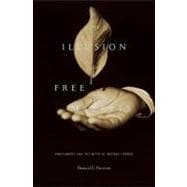
| The Paris Marais and the Chicago Board of Trade | p. 1 |
| Beccaria on Crime and Punishment | p. 53 |
| Policing the Public Economy | p. 63 |
| The Birth of Natural Order | p. 78 |
| The Rise of Legal Despotism | p. 92 |
| Bentham's Strange Alchemy | p. 103 |
| The Chicago School | p. 121 |
| The Myth of Discipline | p. 151 |
| The Illusion of Freedom | p. 176 |
| The Penitentiary System and Mass Incarceration | p. 191 |
| Private Prisons, Drugs, and the Welfare State | p. 221 |
| A Prolegomenon | p. 240 |
| Notes | p. 245 |
| Bibliography | p. 285 |
| Acknowledgments | p. 313 |
| Index | p. 315 |
| Table of Contents provided by Ingram. All Rights Reserved. |
The New copy of this book will include any supplemental materials advertised. Please check the title of the book to determine if it should include any access cards, study guides, lab manuals, CDs, etc.
The Used, Rental and eBook copies of this book are not guaranteed to include any supplemental materials. Typically, only the book itself is included. This is true even if the title states it includes any access cards, study guides, lab manuals, CDs, etc.